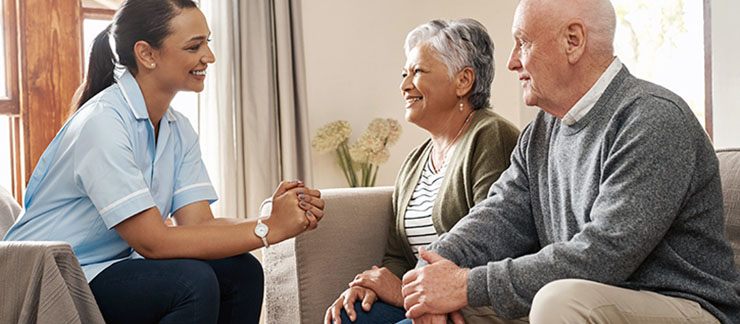What exactly is the term “companion” when it comes to providing companionship? Older Americans who live alone are more likely to suffer from depression and other health problems. Approximately 40% of Americans in their 70s and 60% of those over 80 live alone. Check out Vitality Personal Care Companion Care.
Elderly family members who desire self-sufficiency may find themselves without constant caretakers among us. Companion care is one option for improving their quality of life.
Companion care primarily provides seniors living alone with social and emotional support. A companion can also assist the seniors with daily activities, such as running errands or shopping.
Companions may visit on a daily basis, a few times per week, or only once per week. A few hours or a full day may be required for each visit.
What is the difference between a companion and a caretaker?
More hands-on than home health aides, these individuals help their clients with bathing, dressing, grooming, and other aspects of personal hygiene. They may also provide basic medical services, such as taking temperature or blood pressure, helping with medication, wheelchairs, and walkers.
A wide range of training requirements for personal caregivers includes certification as a nursing assistant or home health aide. On the other hand, no training is required for senior companions.
What exactly does a companion’s job description entail?
A companion’s primary function is to provide emotional and social support. Home care services, such as meal preparation and light housekeeping, may also be provided by companions. They can go grocery shopping, to the hair salon or barber, to the doctor’s office, or social events with the senior. If the senior is unable to leave the house, they can complete the errands.
Even if you’re in a hurry to find someone who can help, put in the effort to find the right person. Be mindful that they will be in your senior’s home alone, possibly driving them around and giving them close care; their safety and security are at stake. Check references and ask tough questions (like how they deal with difficult emotions, how they expect to handle holidays, etc.) at the beginning of the process.
Home visitation services provided by local religious and non-profit organizations may include the use of volunteer visitors. Many organizations train older adults to provide companionship.
When Should You Think About Getting Companion Care?
Companion care isn’t necessary for everyone who is elderly and living alone. However, in certain situations, it may be beneficial. Check out Reliable Companion Care Services in Virginia.
· an older person, lonely and isolated from family and friends.
· an older person or a couple needed assistance with their daily activities.
· A person who is forgetful or suffers from other cognitive difficulties.
· an older adult who has recently lost a significant other or is depressed.
· A patient who cannot remember when and how to take their medication independently.
